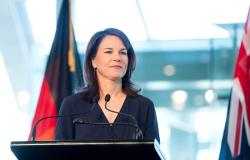Purchasing discussions are not a “zero sum game” and boycotts are often a sign of powerlessness, says Stefaan Hoflack, who advocates the buyer as a bridge builder: “There is no solution besides a negotiated solution.”
A different view on purchasing
“Eventually you no longer tell people that you are a buyer,” laughs purchasing expert Stefaan Hoflack, who currently supervises all purchases and contracts for logistics and supply chain as an interim manager at Delhaize. “People quickly take a step back. I think they are sometimes shocked by certain techniques or tactics that buyers sometimes use. People often see purchasing as a ‘zero sum game’: the buyer can only win if I, as a supplier, lose something. That creates a lot of restraint and distance, it does not lead to added value.”
However, Hoflack, who has twenty years of purchasing experience at EDF Luminus, Fidea and ING, among others, finds purchasing “an incredibly exciting and cool world. As a buyer you have unique perspectives. You come into contact with different business departments, you see what their problems and challenges are. But you also come into contact with many suppliers, and you will learn valuable information from each supplier if you are willing to listen to it. I think it is a very enjoyable profession.” Precisely to advocate a different view of the purchasing profession, he wrote the book “Purchasing Pro”.
Building bridges
In it he outlines a completely different vision: the buyer as bridge builder, who offers added value for both the purchasing organization and the supplier. “I don’t want to throw a stone at buyers: they are often put into a tight canvas, with the focus on savings, on price negotiations. But I don’t believe there is such a thing as the best price. A price is always determined in specific market conditions, for specific quantities, delivery times, etc. Buyers must show sufficient modesty about this. Don’t fall into the fantasy that you have negotiated the best price ever.”
The added value of the modern buyer lies elsewhere: “By listening more actively to suppliers you can bring innovation to the surface from the market. Because where does innovation come from? Usually from your suppliers. Sometimes you need goodwill from your suppliers. If you haven’t built any bridges, then you’re stuck… I think things will turn around, but there’s still a long way to go. It requires different competencies from the buyers.”
Boycott as an emergency
Hoflack purchased “not for resale” services and products for Ahold Delhaize. A somewhat different world than that of the buyers who purchase the range for the stores, but still: “The same principles also apply to direct purchasing. If you can arrive at a solution that benefits both the purchasing organization and the supplier, you are in good hands. Here too, ‘zero sum game’ thinking is not a long-term story.”
In recent months and years we have seen several boycotts in that world, which made it into the media. Hoflack believes it is a situation that you would rather avoid as a buyer. “It’s a kind of emergency situation, where I think both sides are victims. I see it as a sign of powerlessness. Then you have to rebuild the relationship: you have to sit down together again. There is no solution besides a negotiated solution. That game of give and take is coming to an end, something has to change structurally.”
A matter of trust
Sometimes buyers have few alternatives. It’s called “refueling in the desert”. A supermarket cannot function without it Coca Cola. “Also consider large ERP packages with three-letter names. You can try to negotiate with that, they will tell you that you are getting the best deal ever, but you know what it is like…”
Ultimately it’s about trust: “Do you trust that the team on the other side is doing its best for you – and vice versa? As a buyer I may think that I will get worse prices Colruyt: then mention that, but don’t walk away from the table. It is also human work. An account manager wants to be proud of the deal he closes, just as the internal customer and the buyer want to be proud of the contract that has been concluded. You have to work on that together. Trust is the basis of everything. Never make contact with a party you do not trust.”
With his book, Hoflack wants to convey this message to purchasing organizations and the sales employees of suppliers. “I want to enter into a dialogue with them and guide them in the transition to a different way of purchasing, which requires different competencies from buyers.”
“Purchasing Pro – The ROI of sustainable supplier relationships for managers, sales and purchasing professionals” by Stefaan Hoflack has just been published at Lannoo Campus. www.purchasingpro.eu

![[Interview] Stefaan Hoflack (Purchasing Pro): “The best price does not exist”](https://belgium.postsen.com/temp/resized/medium_2024-04-24-2e9868752b.jpg)




